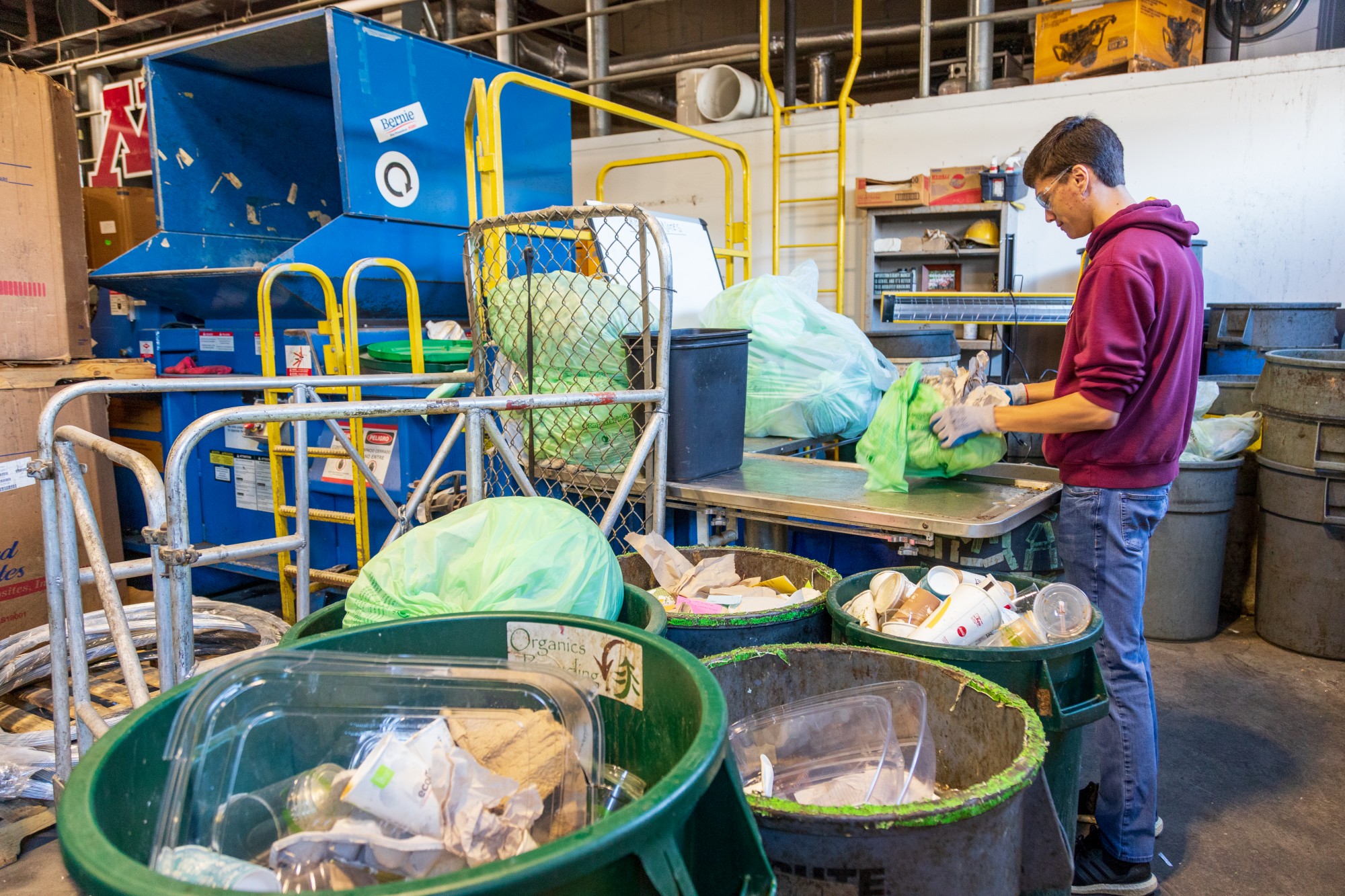With fewer people on the University of Minnesota campus due to the COVID-19 crisis, the University Sustainability Office’s goal of bringing organics recycling to every campus building has slowed considerably.
The University planned to have all of the approximately 300 campus buildings equipped with organics and recycling bins by the end of 2020. The Health Sciences Education Center, which received new bins earlier this week, is now the first building to add bins since March.
Waste Recovery Services is still collecting trash, organics and recycling around campus for the most part. Some campus buildings are not producing as much waste as before, which reduces the amount of waste that needs to be collected.
Since the third week of March, the weight of organic material picked up on the Twin Cities campus has dropped 47%, and the amount of all municipal solid waste has reduced by 27%, according to Waste Recovery Services.
“To put organics collections into a building and train a whole group of people [is difficult] under normal circumstances. And now throwing in everything else that’s going on, it’s just even more challenging,” said Todd Tanner, the University’s zero waste program manager.
One challenge comes with educating staff and students about each bin and the importance of organics recycling. Having people practice using the bins is helpful in forming the habit of recycling, said Allison Sawyer, the University’s organics rollout coordinator.
With fewer people on campus, however, the team is figuring out how to teach those habits remotely.
Sawyer started doing virtual training with campus departments last week and said she plans to continue teaching remotely until social distancing measures are lifted. So far, the online training has been well received and has allowed her to address any confusion and receive feedback, she said.
Adjustment for waste collection staff
Although trash bins are still checked daily, the docks where trash bags are stored are monitored and picked up at different intervals, depending on how much material needs to be collected.
Some buildings that produce more waste, like animal barns, are serviced almost every day. Others that have fewer inhabitants are serviced anywhere from two or three days a week to once every other week.
Some custodial staff in these buildings have stopped collecting organics or recycling altogether, even tipping over the bins to prevent people from using them, said custodial supervisor Yosief Manna.
Nick Kluge, the University’s Waste Recovery Services operations manager, said this level of campus shutdown is something he has never seen before. His team of garbage truck drivers had to rework their routes and the number of pickups.
Kluge had taken the Knoll area on the East Bank, near Pillsbury Drive SE, off the pickup route. Research there had stopped, meaning that there should not have been any biowaste, organics recycling or trash to pick up. Out of curiosity, when he checked in 10 days later, he was surprised to find materials in need of disposal.
“We keep calling it the ‘evolving route,’” he said. “As soon as I think we’re scaling back on a section of campus or on the frequency of service in certain areas, I’m wrong. And we go back and we revise the next day’s routes … I can’t get a pattern around what is taking place in most instances.”
Although none of his waste recovery staff has been let go and all are still getting paid, Kluge said there are fewer on-site workers. Teams that used to consist of 12 people now work in two smaller groups of six that rotate on a weekly basis.
It is common now for drivers to consolidate routes or cover more than one route, even though their hours are about the same. Kluge said he tries to maintain social distancing the best he can by assigning drivers the same truck every week.
“It’s a fine balance when it comes to trash and organics of not letting that material sit [and] make sure that the University is getting the value out of each truck every day,” he said. “To be honest, I could let those things sit a lot longer and let the bins and containers fill up, but I also want to keep campus happy and up to our standards.”


